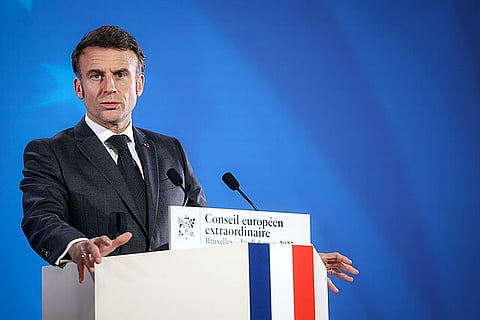

French President Emmanuel Macron formally announced France's recognition of the State of Palestine during a summit at the United Nations General Assembly in New York, aligning with a significant movement by Western nations to support Palestinian statehood. "France today recognises a State of Palestine," Macron declared, framing the decision as a crucial step toward "peace between the Israeli and Palestinian people" and the preservation of a two-state solution . The announcement, made on September 22, 2025, positions France as the first G7 nation to take this step, following similar recognitions days earlier by Britain, Canada, Australia, and Portugal . The Palestinian Authority welcomed the move as a "historic and courageous decision," stating it aligns with international law and UN resolutions .
A Coordinated Western Diplomatic Push
This wave of recognition marks a pivotal shift in Western diplomacy, intensifying pressure on Israel amid its ongoing military campaign in Gaza. The decisions were strategically announced ahead of the high-level UN General Assembly week, where the question of Palestine is a central agenda item . The coordinated action stems from growing frustration with the humanitarian catastrophe in Gaza and the eroding prospects for a two-state solution. UN Secretary-General António Guterres emphasized that Palestinian statehood "is a right, not a reward," and Canadian Prime Minister Mark Carney warned that the possibility of self-determination for the Palestinian people is being actively erased by Israeli policies .
Israeli Condemnation
Israeli Prime Minister Benjamin Netanyahu reacted with fury, condemning the recognitions as a "huge reward to terrorism" following the October 7, 2023, Hamas-led attack . He vowed that no Palestinian state would be established "west of the Jordan River" . The United States, Israel's closest ally, firmly opposed the moves. US Secretary of State Marco Rubio argued that recognizing Palestine would "embolden Hamas," and White House Press Secretary Karoline Leavitt stated President Donald Trump views it as a reward for the militant group . Notably, the US denied a visa to Palestinian President Mahmoud Abbas, preventing him from attending the UN meetings .
Palestinian Response
In his video address to the UN conference, President Mahmoud Abbas called for an immediate ceasefire, humanitarian aid access, and reconstruction. He also made a significant appeal for Hamas to "surrender their weapons" to the Palestinian Authority, asserting the need for a unified state with "one law and one legitimate security force" . The Palestinian Authority's Foreign Ministry praised the recognitions for supporting efforts to achieve peace and implement the two-state solution . These developments occur against the backdrop of a devastating war in Gaza that has killed over 65,000 Palestinians, according to the Gaza health ministry, and turned much of the territory to ruins .
The Path Forward
The recognitions are part of a broader diplomatic initiative, including the UN-endorsed New York Declaration, which outlines a roadmap involving a ceasefire, hostage release, and a viable, sovereign Palestinian State . While these actions are largely symbolic, they represent a powerful international consensus aimed at creating a new political reality. However, with the US and Israel refusing to participate in what they call a "charade," the practical path to achieving a sovereign Palestine remains fraught with challenges . The momentum now puts pressure on other nations to follow suit and challenges the longstanding diplomatic status quo .